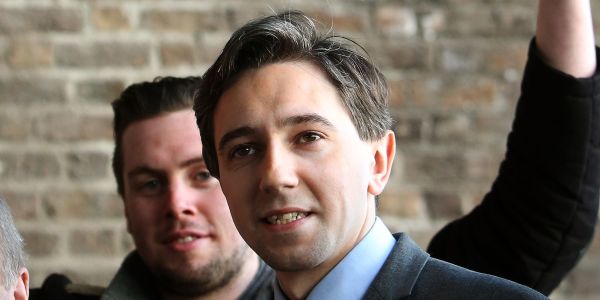Health minister Simon Harris has come under pressure to live up to commitments to ban branded cigarette packets.
As a European deadline on plain packaging for tobacco passes, campaigners warned the crackdown was a minor and technical law which should be a priority for the new minority government.
Some of the world’s biggest cigarette makers – Philip Morris International, British American Tobacco, Imperial Tobacco and Japan Tobacco International – failed to stop the branding controls in Britain.
Donal Buggy, of the Irish Cancer Society, said Ireland had missed the chance to lead the reform and become one of the first countries in Europe to do it.
“The sooner plain packs are on the shelves in Ireland the better,” he said.
The Department of Health blamed missing the deadline for the European directive on plain packaging on the “unusual” delay on the formation of a new government.
It could be several months before amendments to health laws are passed by politicians to force cigarette companies into selling products in boxes which are virtually indistinguishable from each other.
Tobacco giants claim the marketing clampdown will destroy valuable property rights.
But Mr Buggy warned: “The tobacco industry will stop at nothing to delay plain packaging, because they know it works.
“We are concerned that they will use the delayed introduction of plain packaging to exploit other aspects of the Health (Miscellaneous Provisions) Bill 2016.”
The plain packaging rules will include graphic health warnings on two-thirds of the tobacco packet cover, with the brand name the only differentiating feature.
The Irish Cancer Society claimed a survey showed four out of five people were behind the reform, and more than three in five smokers supported it.
Australia has already introduced plain packets and t he European Court of Justice ruled at the start of the month that it was legal.
Mr Buggy said the society’s research also showed that smokers were less inclined to see the change as an immediate effective incentive to quit.
“38% of smokers thought it would encourage them to quit smoking, with 44% disagreeing, while 35% of smokers thought it would encourage family or friends to quit,” he said.
“We expect that this view will evolve as plain packaging becomes the norm, but it highlights the need for continued investment in … such progressive public health actions”.
The Irish Cancer Society welcomed the UK High Court’s decision to reject the tobacco industry’s challenge to plain packaging regulations.
Mr Buggy added: “We are also asking that the ‘wash-out’ period, allowing for the sale of labelled stocks of existing cigarette packs manufactured or circulated before May 20 2016, is not pushed back beyond the existing deadline of May 20 2017, as this could further endanger the goal of a Tobacco Free Ireland by 2025.”
